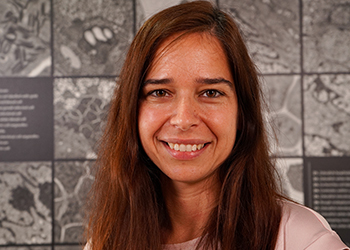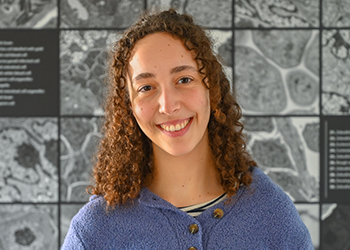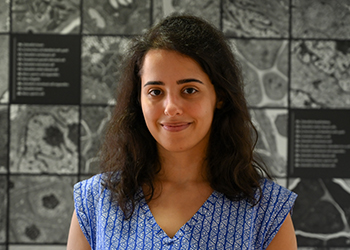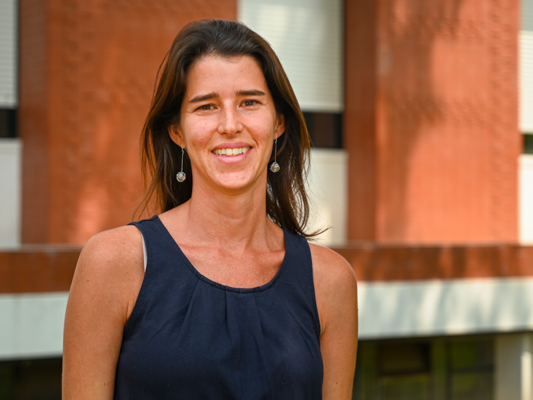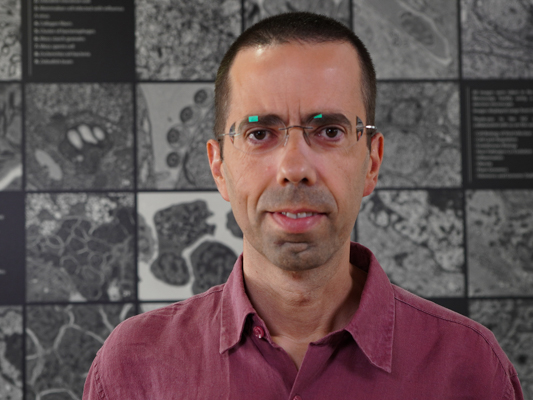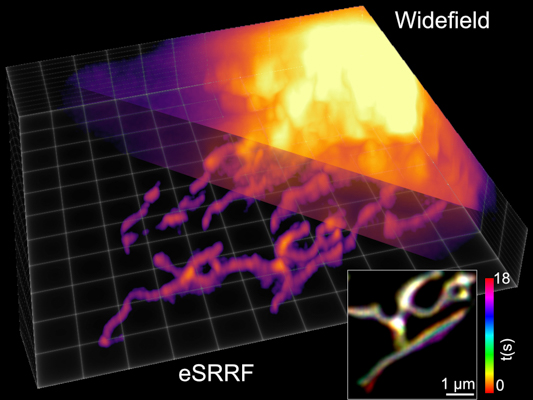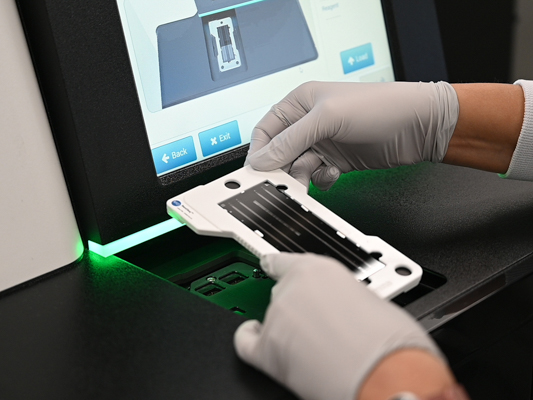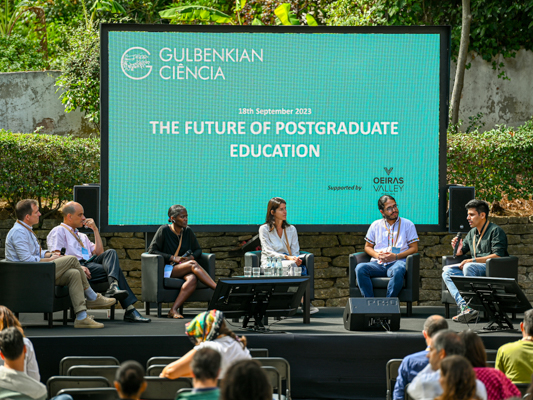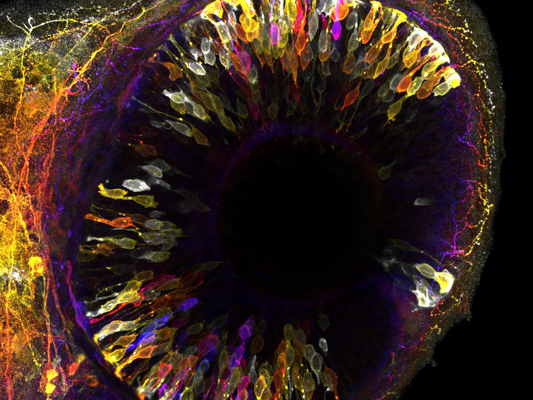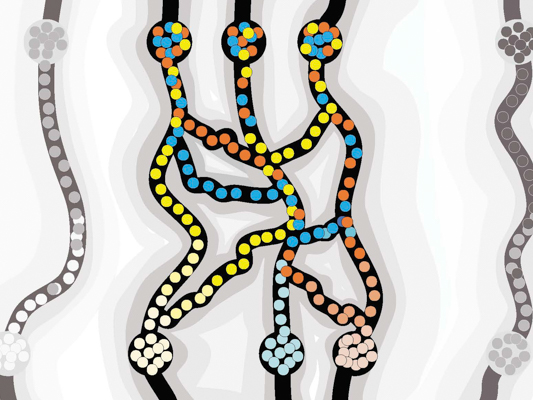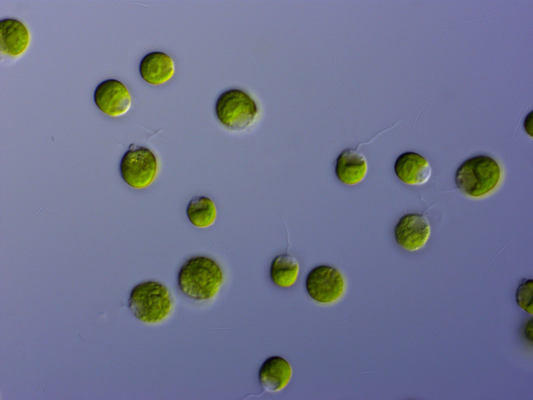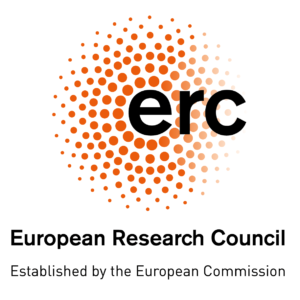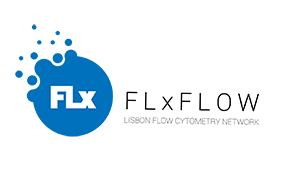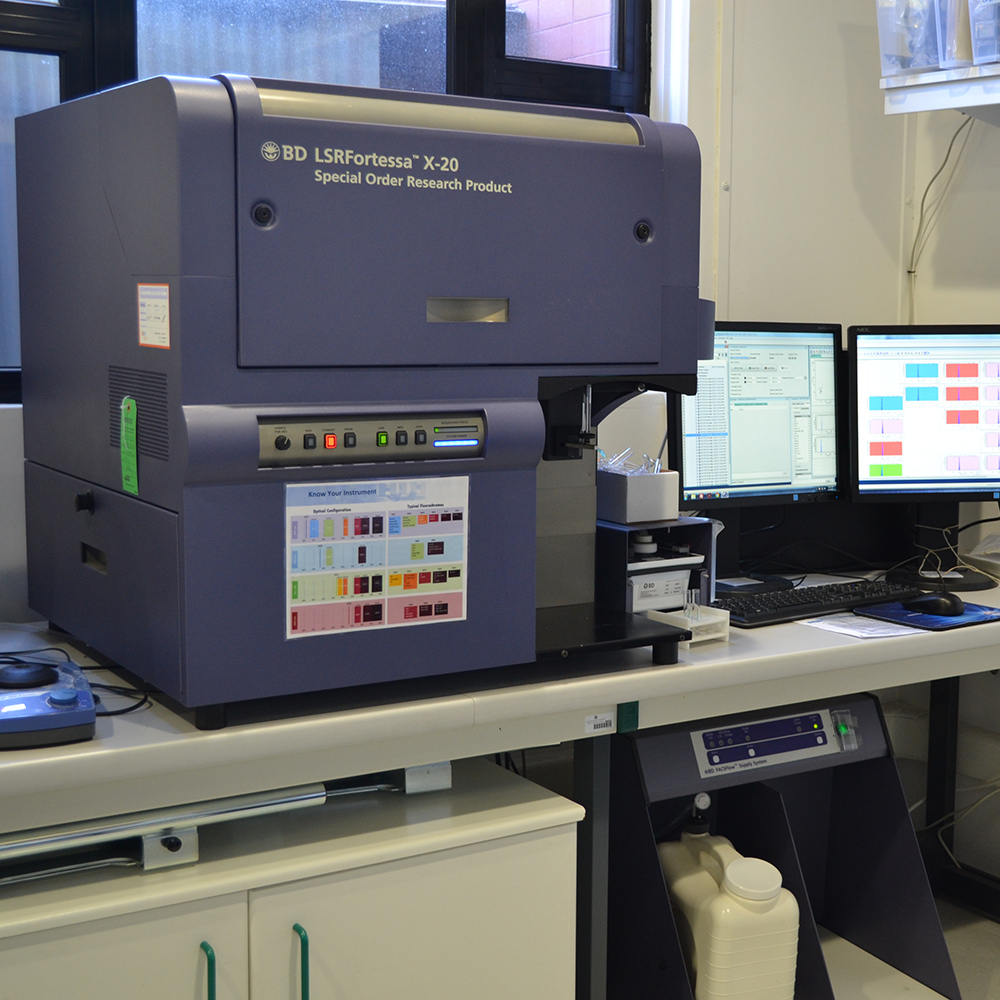
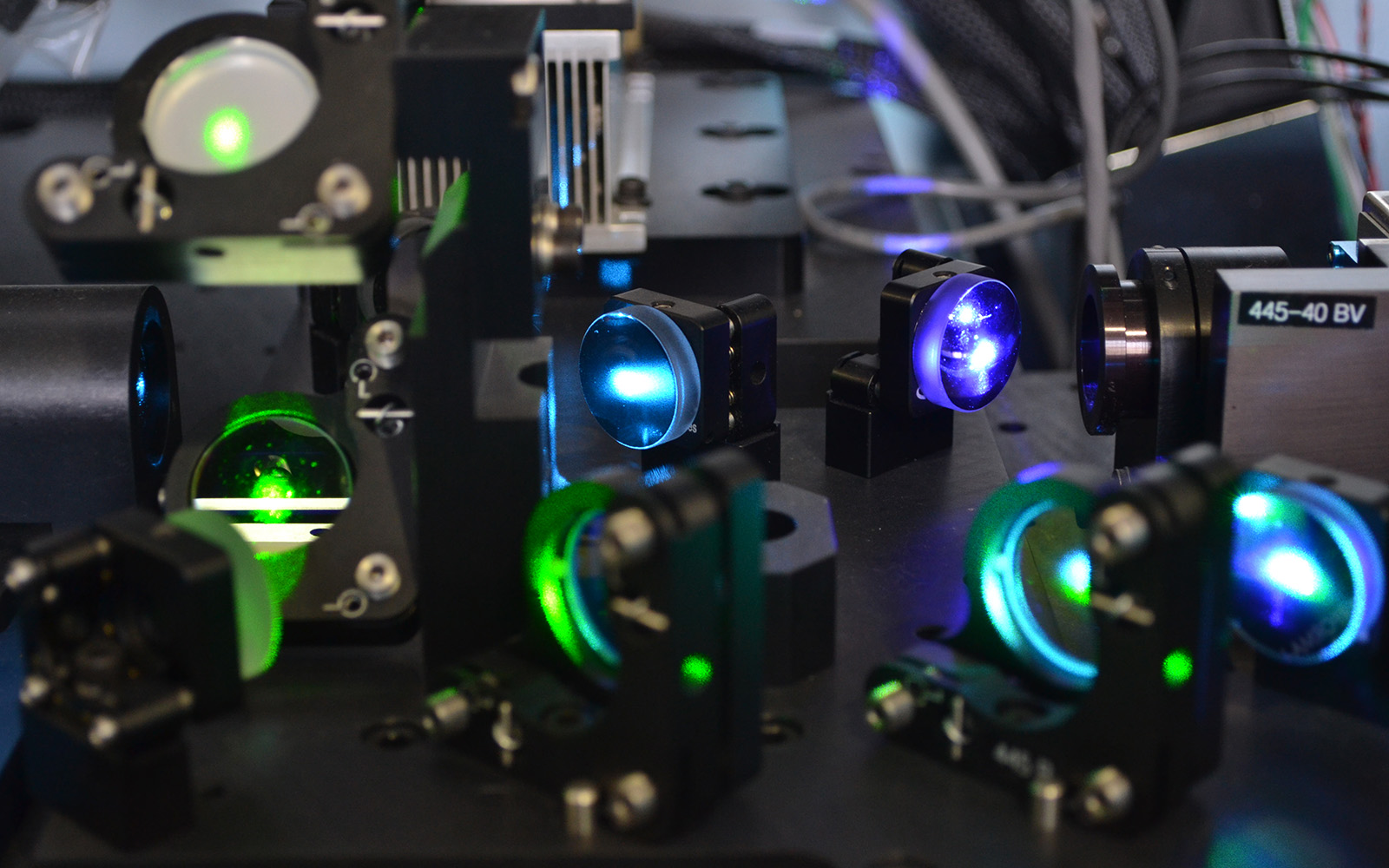
Flow Cytometry
The Flow Cytometry Unit offers flow cytometry services and expertise to IGC researchers, as well as to outside groups and companies.
Laboratory staff is well trained in instrument operation, providing support to cell sorting, cell acquisition and data analysis. Training is available for all analytical instruments and SOP are implemented to comply with the highest quality standards required to ensure reproducibility in science.
The need to find solutions to support research projects drives a continuous development of the facility, which aims to follow the advances in the flow cytometry field, collaborates with innovative projects, creates novel tools and methods to advance research, and implements strategies to improve the quality of the provided services.
For any questions regarding flow cytometry services, please contact [email protected].
In addition to the “Flow Cytometry Unit Particular Terms of Use” described below, all users of the Flow Cytometry (FCF) Unit must comply with the “General IGC Scientific Support Units Terms of Use”.
All users must read, understand, agree and comply with the policies described here. Any questions should be directed to the FCF unit staff.
Reservations:
1.The FCF unit working hours are between 10h00 and 18h00 .
2. To gain access to instrument calendars, users must request permission for the desired equipment through Agendo.
3. Using equipment without reservations is forbidden and will be reported to the Head of FCF and to the IGC Direction as misconduct.
4. An instrument can be booked up to 14 days in advance in blocks of 30 minutes (analyzers) or one hour (sorters).
5. Booking of consecutive slots of time for the same user is not allowed. Users must make a single reservation for the entire time period intended.
6. Experiments are scheduled on a first-booked-first-served basis.
7. Filling all reservation fields in Agendo is mandatory, and must be in accordance with the field's title. All requested information is necessary for helping FCF staff do determine the best instrument, configuration, settings and sorting time, to best assist the researchers and/or for statistical purposes. Failure to fill adequately the requested fields will be considered improper usage and may lead to reserving limitations for the abusing user.
8. Reservations for analyzers are automatically confirmed upon user login in Agendo on the workstation connected to the respective equipment, within a specified period of time before, during, or after the reservation time. Failure to do so indicates the user did not use his/her reservation slot, being automatically reported by e-mail to the user and to the FCF staff.
9. All the reservations are charged, unless they are deleted.
10. When deleting a last reservation of that day, investigators must ensure that the previous user and the FCF staff are both notified.
11. Users must be aware that even if their reservation is not the last one of the day, it may become so if subsequent slots of other users are deleted meanwhile. Therefore, every user must check the Agendo calendar before leaving the analyzer’s room, to ensure he/she has not become the last user of the day.
12. The full responsibility for the proper usage of the equipment belongs to the user who has the reservation in his/her name.
13. Reservations for the cell sorters work as pre-reservations and require confirmation from the FCF facility according to staff availability.
14. Approval of and/or changes to the pre-reservation will be notified by e-mail.
Resources:
1. Cell Sorters – FACSAria IIu
a. The instrument and operators are available for sorts Monday through Friday, from 10h00 to 18h00, except during maintenance periods (see Section Weekly Maintenance below).
b. The sorts are scheduled on a first-booked-first-served basis.
c. Cell sorting scheduling is done at the discretion of the FCF, to maximize availability for the entire IGC community. FCF staff schedules sorts preferentially from the beginning or at the end of the day to avoid breaking large time blocks.
d. If time is unscheduled one day prior to sort, FCF staff can adjust the schedule to fit better particular user needs.
e. To schedule a sort, please:
i) Check time availability for the intended instrument in Agendo
ii) Fill up all the fields required upon Agendo booking
iii) Get follow-up confirmation e-mail from FCF staff
f. Prior to the first sort of a new protocol, please arrange an appointment with FCF Head to discuss the details of the sorting experiment.
g. All the sorting experiments are performed by FCF operators, unless users choose to attend the FCF training module of Cell Sorting and acquire sufficient experience to become independent sorter users.
2. Flow Cytometer Analyzers – FACSCalibur (on BSL-3), LSR Fortessa SORP, LSR Fortessa X20, Aurora Cytek
a. The analyzers are available 24/7, except during maintenance periods (see Section Weekly Maintenance below).
b. Data acquisition on the Flow Cytometry cell analyzers is performed by investigators in a self-service regimen.
c. To operate flow cytometer analyzers, investigators must attend first the FCF Training Program, consisting of one theoretical lesson and one practical session at the instrument.
d. All the experiments are performed autonomously by researchers, unless FCF staff assistance is requested (only available from 10hoo to 18h00).
e. To get priority assistance, please make sure to schedule it in advance in Agendo.
f. For charges of FCF staff assistance, please consult Agendo.
g. It is mandatory to decontaminate the flow cytometer analyzers immediately after sample acquisition, following the cleaning procedures indicated by the FCF. Detailed notes on washing procedures are posted on the instruments.
h. After decontamination, the cytometer must be switched to STAND BY and stay with a tube containing distilled H2O installed.
i. It is mandatory to refill the PBS container at the end of acquisition.
j. Instruments, computers and screens should be turned off if nobody is scheduled to use it in the following four hours and after the last user of the day.
k. The last user of the day is fully responsible for shutting down the equipment. Failure to do so may incur in penalties for the user and costs for the PI for any damage directly related to this serious misusage.
l. It is strictly forbidden to remove the Sample Injection Port (SIP) outer sleeve from any BD instrument. If you believe you need to do so, please contact the FCF staff.
m. If the user experiences any unusual behavior with the cytometer and/or during the analysis, he/she should first refer to the Troubleshooting section of the User’s Guide that is available next to each instrument.
n. If the situation cannot be solved according to the Troubleshooting recommendations, the user should call the facility's staff for assistance.
o. It is the user’s responsibility cleaning up the working bench space and discard all the tubes into the green containers for biohazard waste after his/her experiment.
3. Analysis Workstation – Tango Data Analysis Workstation
a. The computer is available 24/7.
b. Access to the computers is on first-come-first-served basis.
c. These computers are dedicated to flow cytometry data analysis only. They are on the IGC network, run Flow Cytometry software (FlowJo, FCS Express, SpectroFlo, ModFit, Milliplex Analyst, IDEAS) and Office programs to analyze and publish data.
d. The local hard disks of the analysis workstations are not for long-term data storage.
e. Users are responsible to make archival copies of their data.
Data Management
1. The local hard disks of the cytometer workstations and Tango analysis workstation are not for long-term data storage.
2. All files are routinely (monthly) erased to maintain enough free disk space for acquisition and/or analysis, including data on FACS Diva and SpectroFlo.
3. It is strongly recommended to export experiments from the FACS Diva and SpectroFlo to the local workstation folder immediately after acquisition, and transfer data from there to the user’s personal directory in the remote server.
4. The local folder that should be used to store temporarily data exported from FACS Diva and SpectroFlo is located in the Desktop (Export – Routinely Cleared). Any files or folders outside this folder will be deleted without notice.
Weekly Maintenance
1. Regular weekly maintenance on all FCF cell sorters and analyzers is scheduled on Monday or Tuesday mornings (see time scheduled in Agendo).
2. Regular weekly maintenance includes the following procedures on all FCF Analyzers:
a. Fluidic system flush according to manufacturer-recommended procedures for Weekly or Monthly Maintenance (analyzers); extended acquisition of cleaning solutions & preparation for aseptic sorting (FACSAria);
b. Autoclaving of FACSAria sheath tank (twice a month);
c. Quality control according to manufacturer-recommended procedures (all instruments);
d. Reposition of all cleaning solutions, PBS and dH2O, and 5-mL FACS tubes;
e. Removal and discard of all unlabeled sample tubes and racks from the desks and benches;
f. Purge of all illegitimate files from the computers (at the beginning of every month).
Cancellation Policy
1. Scheduled operator-assisted services (sorting and MAGPIX), as well as BSL-3 cell analysis, must be canceled no later than 48 hours prior to the scheduled experiment. If the scheduled sort is not cancelled by this time, the booked time will be fully charged, even if the investigator decides not to use it.
2. Scheduled use of BSL-1 cell analyzers must be cancelled no later than four hours in advance of the scheduled start time. If the scheduled use of the analyzer is not cancelled by this time, the booked time will be fully charged, even if the investigator decides not to use it.
3. If investigators do not cancel their booking within the free-of-charge tolerance period, but find someone willing to use the time they had booked, the FCF staff will transfer that booking to the name of the second investigator, so it is charged to the new user.
Training, Consultation, Discussion and Troubleshooting
1. Users aiming to do flow cytometry analysis must enroll in our Training Program, consisting of one theoretical and one hands-on module. This training is optional for those users only doing cell sorting.
2. The subjects reviewed at the training sessions may vary depending on the background, needs and interests of the investigators. Please do not hesitate to contact FCF Head to find out the best solution for you.
3. For consultation and help, please contact directly the FCF staff during regular working hours or 24/7 via e-mail to get immediate feedback or schedule a meeting with the head of the facility.
EQUIPMENT

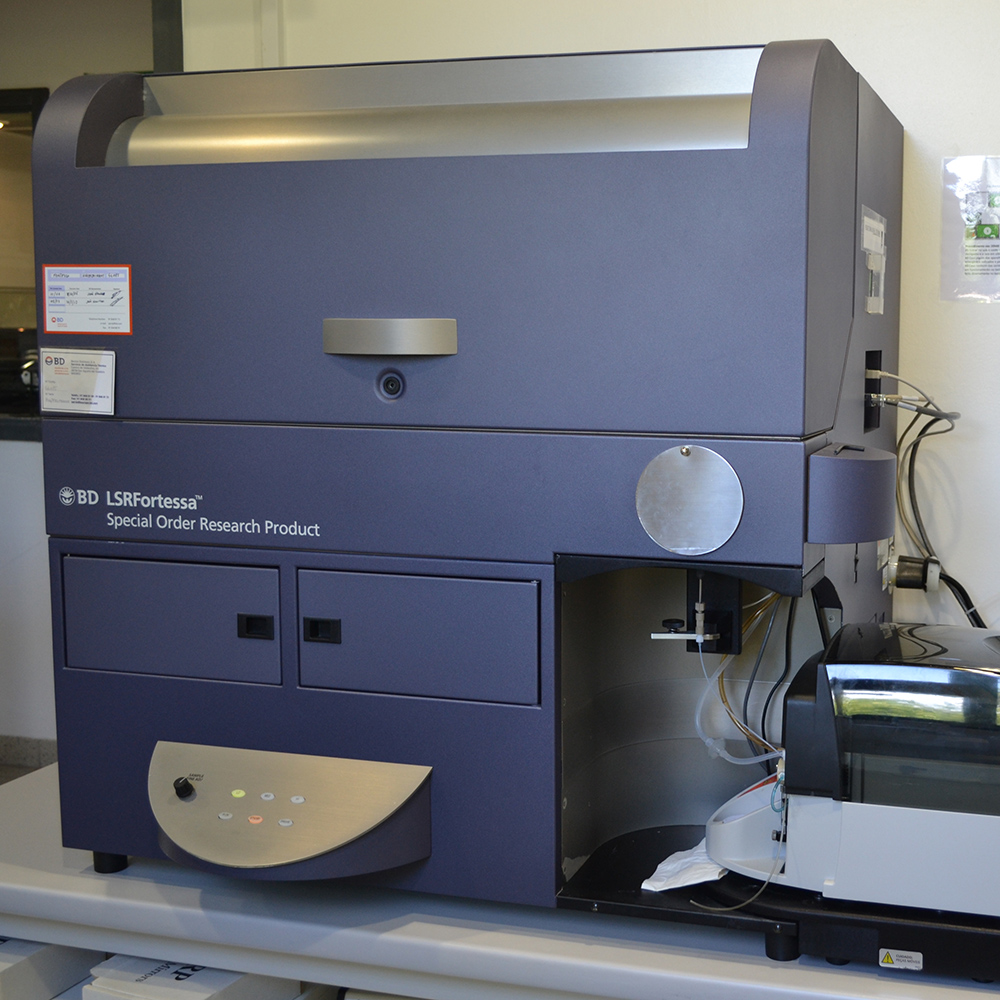
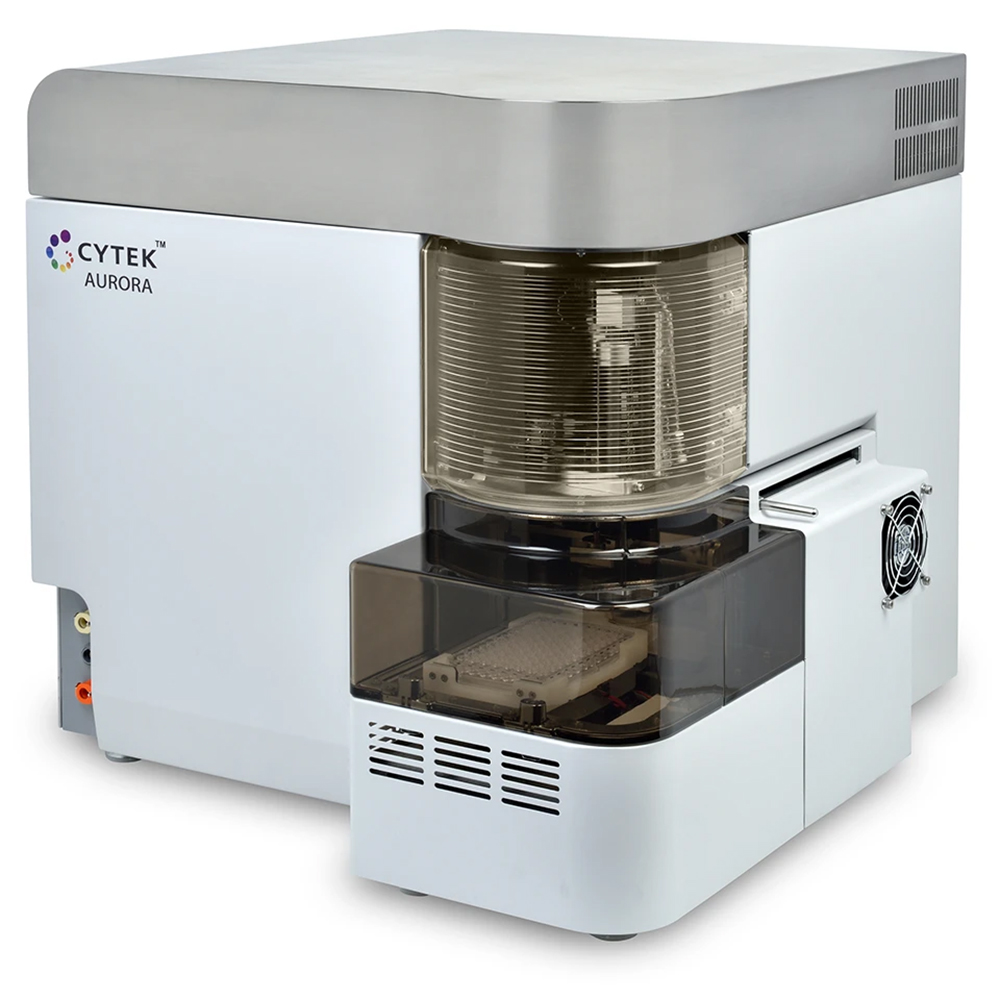

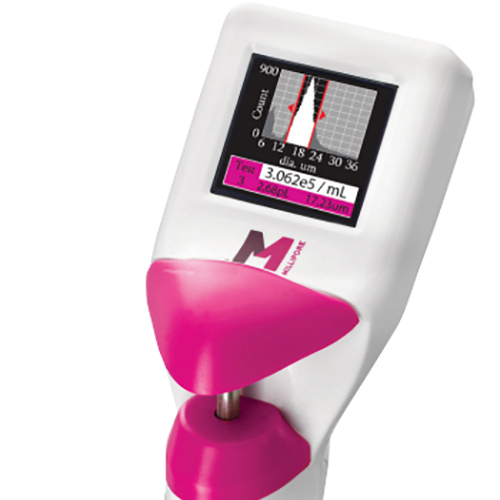
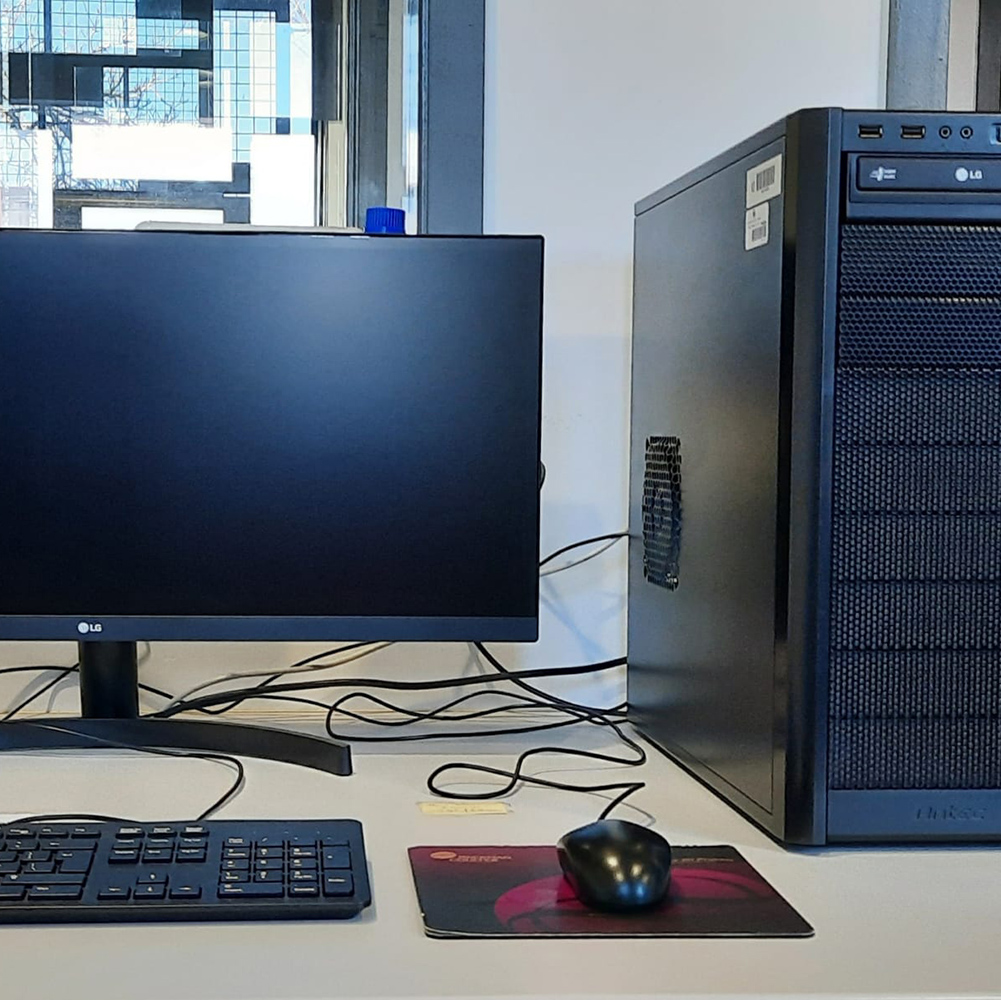
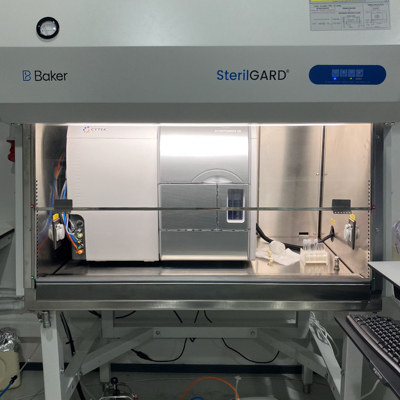
SERVICES
The facility provides a limited number of one-year licenses for FlowJo, a flow cytometry data analysis software with user-friendly environment.
Flow Cytometry & Antibodies Facility offers high quality training in flow cytometry, including cell sorting, full spectrum acquisition and data analysis, providing lectures and hands-on sessions.
The Flow Cytometry & Antibodies Facility has integrated quality assurance protocols for the operation of all scientific instruments.
Custom conjugation of antibodies or proteins with specific organic fluorescent dyes, followed by purification, quantification and validation of the reagents for flow cytometry or other applications.
Design and optimization of antibody-fluorochrome combinations to build and validate large multicolor panels for flow cytometry.
Incubation of samples with titrated fluorescent dyes and/or labeled antibodies for flow cytometry.
Advise on projects, experimental approaches, data analysis and presentation regarding Flow Cytometry and/or antibody related experiments.
USEFUL RESOURCES
PROTOCOLS
PEOPLE
PUBLICATIONS
Check the papers here.
MEDIA

